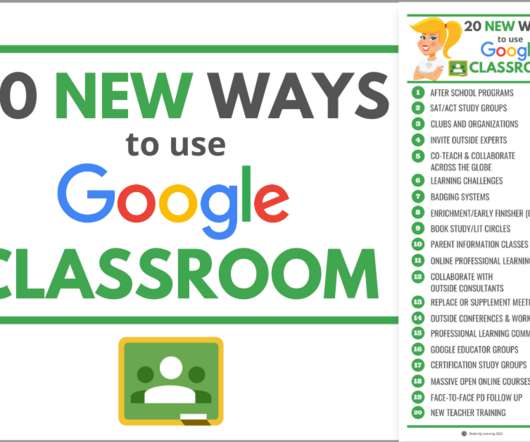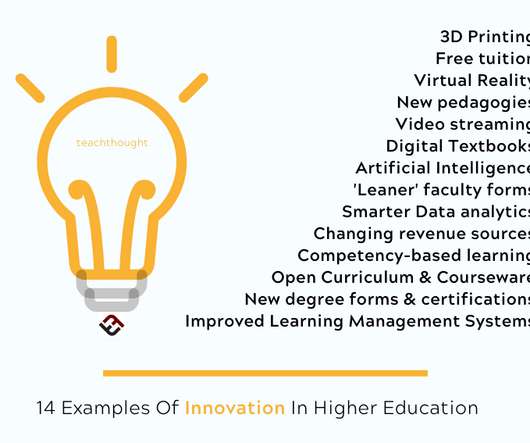Much Ado About MOOCs: Where Are We in the Evolution of Online Courses?
Edsurge
FEBRUARY 26, 2019
A lot has changed since 2012 or, the year the New York Times dubbed the "Year of the MOOC." Today, many MOOC providers now charge a fee. They’ve rolled out bundles of courses called ‘Specializations’ or ‘Nanodegrees.’ So, seven years after the “Year of the MOOC,” we’re wondering: Where are these courses and companies today?












































Let's personalize your content